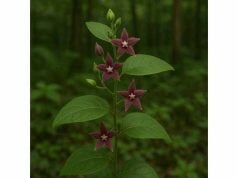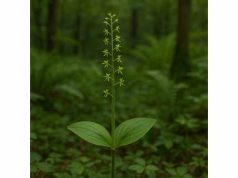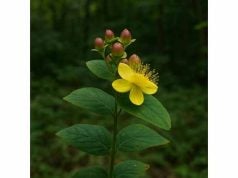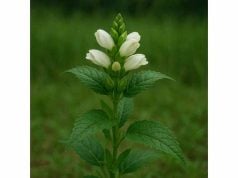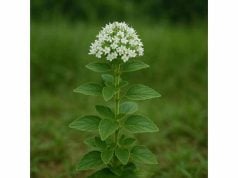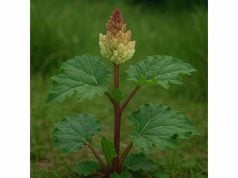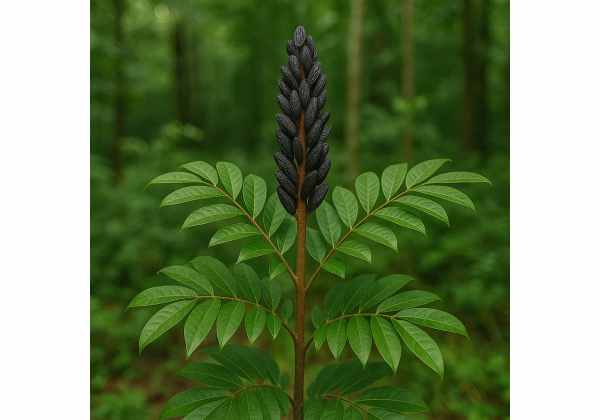
Tonka Bean, derived from the seeds of the Dipteryx odorata tree, is renowned for its intense aroma and complex flavor profile that combines hints of vanilla, almond, cinnamon, and clove. Traditionally used as a spice and fragrance in various cultures, this versatile bean also exhibits intriguing medicinal properties. Its active compounds, primarily coumarin along with other essential phytochemicals, are associated with antioxidant, anti-inflammatory, and antimicrobial effects. Tonka Bean has been used in natural remedies to support digestive health, soothe inflammation, and even enhance mood. As modern research unravels its biochemistry, this article explores its botanical profile, phytochemistry, health benefits, applications, and safety considerations in depth.
Table of Contents
- Botanical Overview and Identification
- Phytochemical Profile and Active Compounds
- Health Benefits and Essential Qualities
- Applications, Uses, and Safety Precautions
- Scientific Research and Key Findings
- Frequently Asked Questions
Botanical Overview and Identification
Tonka Bean is the seed of Dipteryx odorata, a large deciduous tree native to tropical regions of South America, particularly Venezuela, Brazil, and Guyana. This impressive tree, belonging to the Fabaceae family, grows up to 30 meters tall, producing compound leaves and fragrant white flowers that eventually give way to long, flat seed pods. The pods, which resemble dark, wrinkled beans, enclose the tonka beans and are celebrated for their distinctive aroma and flavor when dried. Historically, indigenous peoples have used both the pods and seeds in traditional ceremonies and as a natural remedy.
Taxonomy and Habitat
- Family: Fabaceae
- Genus: Dipteryx
- Species: Dipteryx odorata
- Common Names: Tonka Bean, Cumaru (in some regions)
The botanical classification of Tonka Bean highlights its close relation to other leguminous trees, known for their robust growth and ecological importance. The tree thrives in well-drained, tropical rainforests with high humidity and warm temperatures. It is typically found in lowland forests and along riverbanks where nutrient-rich alluvial soils prevail. Despite its extensive habitat, overharvesting for commercial purposes has raised sustainability concerns, and responsible cultivation practices are now encouraged.
Morphological Characteristics
Leaves:
Tonka Bean trees produce compound leaves arranged in a pinnate fashion. Each leaf can have 8-15 leaflets that are ovate to lanceolate in shape. The fresh foliage is a vibrant green, contributing to the tree’s overall lush appearance.
Flowers:
The tree’s small, white, fragrant flowers bloom in clusters during certain seasons. They are pollinated primarily by insects drawn to their subtle scent and nectar, ensuring the production of fruit later in the year.
Seed Pods and Beans:
After the flowering period, the tree develops elongated pods that eventually split open to reveal the dark brown to black tonka beans inside. When harvested and dried, these beans emit a strong, alluring aroma that has made them a prized spice in culinary and perfumery industries. The unique combination of volatile oils and coumarin in the beans gives them a complex flavor reminiscent of vanilla, almond, and spices.
Growth Conditions and Cultivation
Tonka Bean trees prefer humid, tropical climates with well-distributed rainfall. They thrive under full sun or partial shade and require well-drained soils rich in organic matter. In traditional settings, the trees are grown in mixed forest systems where they benefit from the microclimate and protection provided by other canopy species. Due to their slow growth and long juvenile period, cultivation can be challenging, necessitating sustainable harvesting practices to preserve natural populations. Modern agricultural techniques, including agroforestry and selective breeding, are being implemented to secure a steady supply while maintaining ecological balance.
Cultural and Historical Significance
For centuries, tonka beans have been valued by indigenous communities for their multifaceted uses. In traditional medicine, they were used as a carminative, sedative, and even as an aphrodisiac. The rich aroma of tonka beans also found its way into cultural rituals, where it was often burned as incense or used to flavor ceremonial beverages. European explorers soon recognized the bean’s potential, and it became a highly coveted spice in Europe by the 18th century, prized not only for its aromatic qualities but also for its supposed medicinal benefits. Today, while modern regulations restrict its use in foods in some regions due to coumarin content, tonka beans remain a fascinating subject of study for their complex phytochemistry and potential health benefits.
Phytochemical Profile and Active Compounds
The health benefits and distinctive aroma of tonka beans are primarily attributed to their rich phytochemical profile. These beans are loaded with various bioactive compounds, many of which have been the focus of scientific inquiry. The primary compound, coumarin, along with a host of secondary metabolites, contributes to both its therapeutic properties and its controversial status in food regulation.
Key Bioactive Constituents
- Coumarin:
Coumarin is the most abundant and well-studied compound in tonka beans. It is responsible for the sweet, vanilla-like aroma that defines the tonka bean. Coumarin exhibits anticoagulant, anti-inflammatory, and antioxidant properties. However, its hepatotoxic potential in high doses has led to regulatory restrictions in several countries, particularly in the United States and Europe. - Furanocoumarins:
These compounds, structurally related to coumarin, contribute to the overall bioactivity of the bean. Furanocoumarins have been observed to possess antimicrobial and anti-inflammatory effects, although their specific mechanisms remain under study. - Essential Oils:
Tonka beans contain a complex mixture of essential oils, including benzyl benzoate and other volatile compounds. These oils not only contribute to the bean’s robust fragrance but also exhibit antimicrobial and sedative properties, making them valuable in both aromatherapy and traditional medicine. - Flavonoids and Polyphenols:
A variety of flavonoids and polyphenolic compounds are present in tonka beans, providing strong antioxidant activity. These molecules help in scavenging free radicals, thereby protecting cells from oxidative stress and reducing inflammation. - Saponins:
Saponins in tonka beans improve the bioavailability of other active compounds by enhancing cellular permeability. They also exhibit anti-inflammatory and immune-enhancing effects, contributing to the beans’ overall therapeutic profile. - Tannins:
Tannins are a group of polyphenolic compounds that have astringent properties. In tonka beans, tannins help in detoxification and may provide mild antimicrobial effects, supporting digestive health and overall wellness. - Sterols:
Phytosterols found in the beans contribute to cardiovascular health by potentially lowering cholesterol levels and supporting cell membrane stability. They work synergistically with other bioactives to enhance the overall health benefits of tonka beans.
Synergistic Effects
The interplay between these compounds creates a synergistic effect that amplifies the overall bioactivity of tonka beans. For example, while coumarin provides the characteristic aroma and some of the therapeutic effects, the presence of flavonoids and polyphenols enhances antioxidant protection. Similarly, the antimicrobial action of essential oils is reinforced by tannins and saponins. This synergy is crucial for understanding how tonka beans exert their effects on human health and underscores the importance of using whole extracts to capture the full spectrum of activity.
Extraction Methods
To harness the medicinal properties of tonka beans, various extraction techniques are employed:
- Solvent Extraction:
This method uses solvents such as ethanol or methanol to efficiently extract both lipophilic and hydrophilic compounds. It yields a potent extract that maintains the integrity of the active ingredients. - Steam Distillation:
Used primarily to isolate the essential oils from tonka beans, steam distillation preserves the volatile compounds responsible for the beans’ fragrance and some of their antimicrobial properties. - Cold Pressing:
Although less common for tonka beans, cold pressing can be used to extract oil without the heat-induced degradation of delicate phytochemicals.
Standardization of these extracts ensures that each product contains consistent levels of key active compounds such as coumarin, flavonoids, and saponins. This is critical for both research and therapeutic applications.
Health Benefits and Essential Qualities
Tonka beans are renowned not only for their captivating aroma but also for their potential health benefits, which have been recognized in traditional medicine and are increasingly supported by modern research. This section explores the multifaceted health benefits attributed to tonka beans and explains the underlying mechanisms that contribute to these effects.
Antioxidant and Anti-inflammatory Effects
Oxidative Stress Reduction:
The high content of polyphenols and flavonoids in tonka beans contributes to robust antioxidant activity. These compounds neutralize free radicals, thereby protecting cells from oxidative damage. This antioxidant defense is essential for reducing the risk of chronic diseases such as cardiovascular disease, certain cancers, and neurodegenerative disorders.
Inflammation Mitigation:
Coumarin and its related compounds exhibit strong anti-inflammatory properties by inhibiting the release of pro-inflammatory cytokines. This reduction in inflammation can help alleviate symptoms associated with chronic inflammatory conditions, including arthritis and inflammatory bowel disease.
Cardiovascular Health
Blood Pressure and Lipid Regulation:
The synergistic action of flavonoids, sterols, and polyphenols in tonka beans is believed to promote cardiovascular health. These compounds improve endothelial function, reduce LDL cholesterol levels, and support overall vascular health. The antioxidant properties further help mitigate oxidative stress on blood vessels.
Digestive Health
Digestive Aid:
Tonka beans have been traditionally used to support digestion. The astringent properties of tannins can help reduce diarrhea and improve gut motility, while the presence of polyphenols aids in protecting the gastrointestinal lining from inflammation and oxidative stress.
Detoxification:
Improved digestive function facilitates the effective removal of toxins from the body. This detoxifying effect, combined with the support of liver function, contributes to overall metabolic balance and long-term health.
Hormonal and Mood Regulation
Sedative and Relaxant Properties:
Essential oils and coumarin derivatives in tonka beans are noted for their mild sedative effects. These compounds can help reduce anxiety and promote relaxation, making them beneficial for improving sleep quality and mood stability.
Hormonal Balance:
Although research is ongoing, some studies suggest that tonka bean extracts may influence endocrine function. The bioactive compounds may contribute to the regulation of stress hormones, such as cortisol, thereby promoting a balanced mood and improved overall mental well-being.
Cognitive Benefits
Neuroprotection:
The antioxidant and anti-inflammatory properties of tonka beans play a significant role in neuroprotection. By reducing oxidative damage in neural tissues, these compounds can help preserve cognitive function and potentially delay age-related memory decline.
Enhanced Mental Clarity:
Traditional use of tonka beans as an herbal remedy for mental fatigue is supported by their ability to improve blood flow to the brain and mitigate neural inflammation, leading to heightened alertness and mental clarity.
Skin Health and Cosmetic Applications
Anti-Aging Effects:
Topically, tonka bean extracts are increasingly incorporated into skincare formulations for their antioxidant properties. These extracts help reduce the visible signs of aging, such as wrinkles and fine lines, by protecting the skin from oxidative damage.
Wound Healing:
The antimicrobial and anti-inflammatory effects of tonka bean constituents contribute to faster wound healing and reduced skin irritation, making them beneficial for various dermatological applications.
Holistic Well-being and Vitality
Adaptogenic Qualities:
Tonka beans have been traditionally used as a tonic to boost overall vitality. Their ability to support the body’s defense against stress, coupled with their detoxifying properties, helps maintain a state of holistic well-being and energy.
Overall Tonic:
Regular consumption of tonka bean extracts, when used appropriately, can contribute to sustained physical energy, improved immune function, and a general sense of wellness.
In summary, the health benefits of tonka beans are diverse and extensive. From antioxidant and anti-inflammatory effects to cardiovascular and digestive support, these beans offer a holistic approach to enhancing overall health. While the potent bioactive compounds in tonka beans provide a wide range of therapeutic benefits, their use must be balanced with caution due to the potential hepatotoxicity of coumarin in high doses.
Applications, Uses, and Safety Precautions
Tonka beans have found their way into various culinary, medicinal, and cosmetic applications. Despite their enticing flavor and potential health benefits, there are important safety considerations to keep in mind due to the coumarin content, which can be toxic in high doses. This section details the different applications of tonka beans and provides guidelines for their safe use.
Culinary Uses
Flavor Enhancer:
Tonka beans have a unique, sweet aroma reminiscent of vanilla, almond, cinnamon, and clove. They are commonly grated or powdered and used as a natural flavoring agent in desserts, pastries, custards, and beverages. Their rich flavor profile can transform dishes, making them a favorite among gourmet chefs and home cooks alike.
Infusions and Liqueurs:
Tonka beans are sometimes steeped in milk, cream, or alcohol to create aromatic infusions and liqueurs. These beverages capture the essence of the bean’s complex flavor while delivering its subtle bioactive compounds. However, due to strict food safety regulations in some countries, their use in food products is controlled to avoid excessive coumarin intake.
Medicinal Applications
Traditional Remedies:
Historically, tonka beans have been used in traditional medicine to promote relaxation, enhance digestion, and support skin health. Infusions or decoctions made from tonka beans are believed to have mild sedative and anti-inflammatory properties.
Supplement Formulations:
In modern herbal supplements, standardized tonka bean extracts are sometimes combined with other herbs to create blends aimed at improving overall vitality and supporting the body’s natural detoxification processes. It is crucial that these supplements are used under appropriate dosage guidelines to prevent potential hepatotoxicity.
Cosmetic and External Uses
Skincare Products:
Due to their antioxidant properties, tonka bean extracts are incorporated into cosmetics and skincare formulations designed to combat free radical damage. They can help reduce the appearance of aging, promote skin elasticity, and even out skin tone. These extracts are typically found in serums, lotions, and creams.
Aromatherapy:
Essential oils derived from tonka beans may be used in aromatherapy practices. The warm, inviting scent is employed to promote relaxation, stress relief, and mental clarity. Diffusers and massage oils containing tonka bean oil provide a subtle yet uplifting aromatic experience.
Safety Guidelines and Precautions
Coumarin Concerns:
One of the major safety concerns with tonka beans is their high coumarin content. Coumarin, although responsible for the distinctive flavor and aroma, can be hepatotoxic if ingested in large quantities. Regulatory agencies in some countries have imposed limits on coumarin levels in food and beverages.
Dosage Recommendations:
- Culinary Use: When used in cooking, only small amounts of grated or powdered tonka bean should be added, generally not exceeding a fraction of a teaspoon per serving.
- Supplement Form: For therapeutic purposes, follow the recommended dosage on the label. Typically, standardized extracts should not exceed the daily limits advised by health authorities.
- Topical Use: Skin care products formulated with tonka bean extracts are designed for external application only. Avoid ingestion and ensure that the product is used as directed.
Who Should Exercise Caution:
- Pregnant and Breastfeeding Women: Due to limited research on coumarin’s effects during pregnancy, these groups should avoid tonka bean products.
- Individuals with Liver Conditions: Given the potential hepatotoxicity of coumarin, those with existing liver problems should refrain from using tonka bean extracts without medical supervision.
- Children: Tonka bean products are generally not recommended for children due to the risk of toxicity.
Interactions and Contraindications:
- Medication Interactions: Tonka bean extracts may interact with medications that affect liver enzymes. It is important for individuals taking prescription medications to consult with their healthcare provider.
- Allergic Reactions: Although rare, some individuals may be allergic to tonka beans. Discontinue use if symptoms such as rash, itching, or swelling develop, and seek medical advice promptly.
Usage Best Practices:
- Source Quality: Purchase tonka bean products from reputable suppliers who provide clear information on coumarin content and adhere to regulatory standards.
- Monitor Intake: Keep track of how much tonka bean is used in both culinary and medicinal contexts to avoid exceeding safe limits.
- Consult Professionals: Always seek guidance from a qualified health practitioner when using tonka bean supplements, especially if combining with other herbal or pharmaceutical treatments.
By adhering to these safety guidelines and using tonka beans in moderation, the benefits of their unique flavor and potential medicinal properties can be enjoyed while minimizing risks.
Scientific Research and Key Findings
Scientific research into tonka beans has focused primarily on understanding their complex phytochemistry and the potential health benefits associated with their bioactive compounds. Although regulatory concerns over coumarin have limited some applications, recent studies provide insights into the promising therapeutic potential of tonka beans when used responsibly.
Key Research Studies
- Antioxidant and Anti-inflammatory Properties (2017):
A study published in 2017 evaluated the antioxidant capacity of tonka bean extracts using DPPH and ABTS assays. The research demonstrated that the polyphenols and flavonoids present in tonka beans effectively neutralize free radicals and reduce oxidative stress. The study also noted anti-inflammatory effects, attributing them largely to coumarin derivatives and other secondary metabolites. - Hepatoprotective Effects of Coumarin Derivatives (2018):
An investigation in 2018 explored the hepatoprotective potential of isolated coumarin derivatives from tonka beans in animal models. The findings indicated that, at controlled doses, these compounds can safeguard liver cells from chemical-induced damage by enhancing antioxidant defenses and reducing inflammatory markers. However, the study cautioned against high doses due to potential toxicity. - Antimicrobial Activity (2019):
A 2019 study assessed the antimicrobial properties of essential oils extracted from tonka beans. The results revealed that the oils exhibit significant activity against various bacterial and fungal strains, suggesting potential applications in natural preservatives and topical antiseptics. - Sensory and Flavor Chemistry (2020):
Researchers in 2020 investigated the flavor profile of tonka beans through gas chromatography–mass spectrometry (GC-MS) analysis. This study mapped the complex array of volatile compounds responsible for the characteristic aroma. The results provided a scientific basis for the use of tonka beans as a gourmet spice and in perfumery, although food safety limits on coumarin remain a crucial consideration. - Cytotoxicity and Safety Profiles (2021):
In 2021, a series of in vitro experiments examined the cytotoxic effects of tonka bean extracts on various cell lines. The research emphasized that while low doses of the extract exhibited protective antioxidant effects, higher concentrations could be cytotoxic, likely due to excessive coumarin levels. This study underscores the importance of dosage standardization in therapeutic applications.
Mechanistic Insights
The cumulative research findings suggest that the health benefits of tonka beans are mediated through several mechanisms:
- Antioxidant Defense:
The robust antioxidant properties, driven by polyphenols and flavonoids, support cellular health by mitigating oxidative stress. - Anti-inflammatory Modulation:
Coumarin derivatives and related compounds downregulate inflammatory pathways, contributing to reduced tissue inflammation. - Hepatoprotection:
At therapeutic doses, certain compounds in tonka beans help protect liver function by preventing oxidative damage and facilitating cellular repair. - Antimicrobial Activity:
The essential oils present in tonka beans provide antimicrobial benefits that could be leveraged in natural preservative formulations.
Future Research Directions
While current studies have provided encouraging insights into the benefits of tonka beans, further research is needed to:
- Conduct long-term clinical trials to evaluate the therapeutic efficacy and safety of tonka bean supplements in humans.
- Develop standardized extraction methods to ensure consistent and safe dosages.
- Investigate the potential synergistic effects when tonka bean extracts are combined with other herbs.
- Explore the genetic and environmental factors that influence the phytochemical composition of tonka beans.
In conclusion, scientific research into tonka beans supports many traditional claims regarding their health benefits while emphasizing the need for careful dosage and safety considerations due to coumarin content. Continued research will be critical in harnessing their full potential for natural health applications.
Frequently Asked Questions
What are the main health benefits of tonka beans?
Tonka beans are known for their potent antioxidant and anti-inflammatory properties, which can help protect against oxidative stress and chronic inflammation. They have been used in traditional medicine to support liver health, enhance digestion, and improve overall well-being when used in controlled amounts.
What is the key active compound in tonka beans?
The key active compound in tonka beans is coumarin, which is responsible for their distinctive sweet aroma. Coumarin also possesses anticoagulant, antioxidant, and anti-inflammatory properties, though its use must be moderated due to potential hepatotoxicity.
How can tonka beans be safely used in cooking?
When used in culinary applications, tonka beans should be grated sparingly—typically a few shavings per dish—to impart flavor without exceeding safe coumarin levels. Always use high-quality, organic beans and adhere to regulatory guidelines regarding coumarin content.
Are there any risks associated with tonka bean consumption?
High doses of tonka beans can be hepatotoxic due to their coumarin content. It is important to use them in moderation, whether as a spice or in supplement form, and to consult with a healthcare provider, particularly for individuals with liver conditions or those pregnant or breastfeeding.
Can tonka beans be used for medicinal purposes?
Yes, tonka beans have been used traditionally to support liver function, enhance digestion, and reduce inflammation. However, modern applications typically involve standardized extracts used under controlled conditions to ensure safety and efficacy.
Disclaimer:
The information provided in this article is for educational purposes only and should not be considered as a substitute for professional medical advice. Due to the potential health risks associated with high coumarin intake, particularly hepatotoxicity, please consult with a healthcare professional before incorporating tonka bean products into your diet or supplementation regimen.
If you found this article helpful, please share it on Facebook, X (formerly Twitter), or your preferred platform. Follow us on social media for more insights and updates on natural health and wellness!

